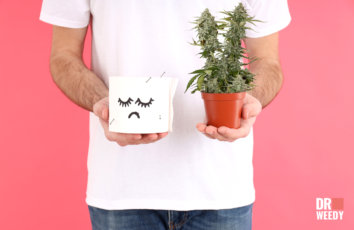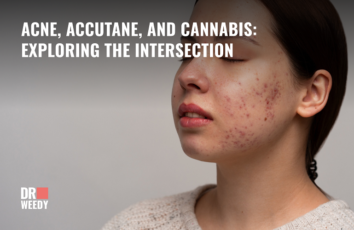The legality of CBD in Ohio
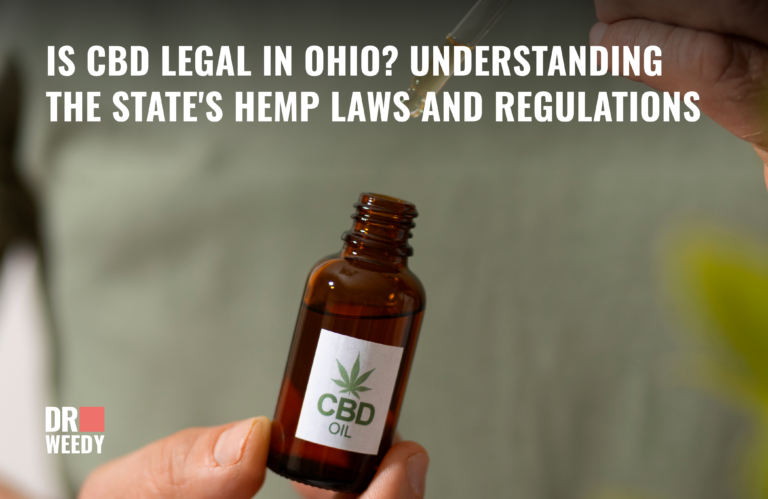
Ohio has had a complex journey in clarifying the legal status of CBD products. With changing federal regulations and new state laws enacted in recent years, there has been confusion amongst consumers, producers, and retailers on what is permitted. This article will break down the current federal and state laws, discuss the types of CBD that can be purchased legally, and what we might expect in the future.
Federal Law Regarding CBD
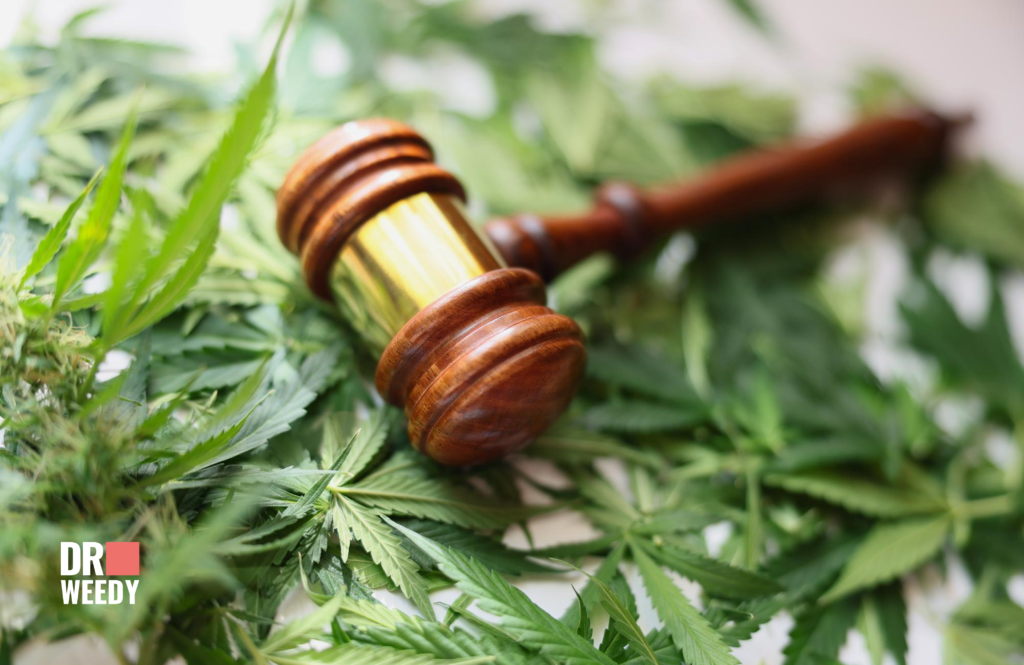
The 2018 Federal Farm Bill was a landmark piece of legislation that drastically changed the classification of hemp and hemp-derived products. By redefining hemp as any part of the cannabis plant with 0.3% THC or less, hemp was effectively made an agricultural commodity and removed as a controlled substance under federal law. This opened the doors for mass production and interstate sales of CBD products. However, the bill does not preempt state law, allowing for a complex patchwork of regulations across the country.
Ohio’s History With CBD Law
In answering the question of whether CBD is legal in Ohio, the short answer is yes – as long as the products are derived from hemp and contain less than 0.3% THC. Ohio has grappled with clarifying their stance on both medical and recreational marijuana for years. House Bill 523 legalized medical marijuana in 2016, but left the status of hemp-derived CBD in question. It wasn’t until Senate Bill 57 passed in 2019 that a clear regulatory framework was implemented specifically for hemp and CBD. This bill officially legalized the cultivation, processing, and retail sale of hemp-derived CBD products containing less than 0.3% THC.
Breaking Down Ohio’s Current CBD Laws
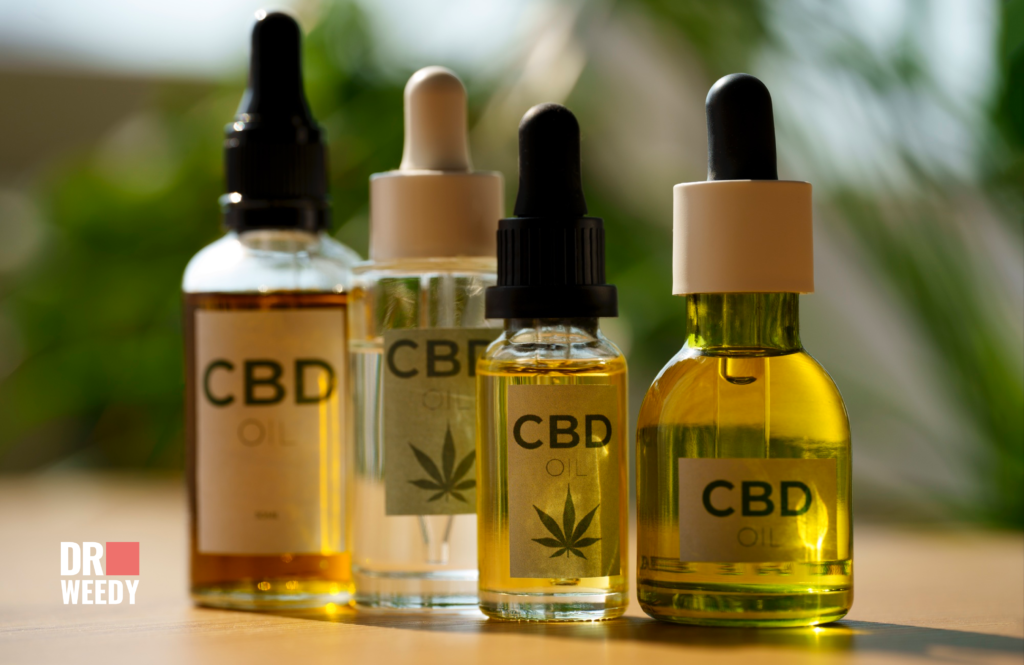
Ohio has now embraced hemp-derived CBD while continuing to fine tune their medical marijuana control program. Here are some key aspects of the current laws:
- Possession limits – There are no set possession limits for hemp-derived CBD products. Consumers may freely buy and possess any quantity.
- Approved products – Hemp-derived CBD may now be sold in various product types including oils, infused foods, topicals, vapes, and more.
- In-state purchasing – Consumers may purchase CBD from stores within Ohio or ship products in from out of state online retailers. All products must originate from licensed growers.
- Vertical integration – The medical marijuana program requires vertical integration, forcing dispensaries to cultivate and process all products in-house.
- Prescriptions – Patients need certification from registered physicians to enter the medical marijuana program. Hemp-derived CBD requires no prescription.
- Licensing – Medical marijuana businesses must be licensed through state departments. Selling hemp-derived CBD products requires no special licensing.
Are CBD Gummies Legal in Ohio?

CBD gummies have become an extremely popular way to consume this health-promoting compound. These flavorful treats make taking daily supplements easy and pleasant. Under the umbrella of Senate Bill 57, hemp-derived CBD gummies can now be legally manufactured, distributed, and purchased within the state of Ohio.
Any CBD-infused product, including gummies, must originate from a licensed hemp grower to comply with state law. This guarantees the plants are properly vetted to contain less than 0.3% THC before being made into any retail consumer products. Additionally, the final gummy products must pass independent third-party testing to confirm they still meet the legal threshold.
Both broad spectrum and full spectrum hemp-derived CBD gummies can be purchased without prescription or medical marijuana card. Although full spectrum varieties contain trace amounts of THC, they remain under the established limits. Flavored CBD gummies make it easy to ingest capsules on the go or give as daily health supplements to family members. Their sweet flavors and chewy texture mask any natural hemp aftertaste.
What to Expect in Ohio’s CBD and Marijuana Landscape
As of late 2023, Ohio has legalized recreational marijuana for adults 21 and over. Medical marijuana access has also expanded in recent years. This shifting legal landscape allows us to reasonably expect further progress in the coming months and years:
- Implementation of adult-use retail sales in dispensaries
- Streamlining of medical marijuana recommendations and patient registrations
- Potential expansion of qualifying medical conditions
- Opportunities for patients to access reciprocal treatment across state lines
- Continued growth in access, availability, and product diversity for hemp-derived CBD
With recreational cannabis now legalized through voter initiative, Ohio rescinded prohibitions on dispensary licensing. We can expect an emerging adult-use market by mid-2024. And the timeline may accelerate if lawmakers introduce legislative changes. In addition to THC products, full marijuana legalization will continue to normalize non-intoxicating CBD consumption from hemp sources.
Common Questions About CBD Legality
Is hemp-derived CBD completely legal in Ohio?
Yes, CBD products that originate from licensed hemp growers and contain 0.3% THC or less are now federally and locally legal in Ohio.
Can I grow hemp or marijuana in Ohio?
As of November 2023, adult recreational marijuana use was legalized in Ohio. Adults 21 and over can now legally grow up to 6 marijuana plants individually, or up to 12 plants per household. The state legislature is still finalizing rules, including possible reductions to the household plant limit. But home growing within defined bounds is now permitted under the new law.
Can minors purchase CBD products?
There are currently no age restrictions defined in state law. However, many retailers choose to limit purchases to 18+ or 21+ customers. Medical marijuana requires certified patients only.
Will CBD products cause me to fail a drug test?
Full spectrum hemp products do contain trace amounts of THC that could potentially trigger positive results. Those undergoing drug testing should use CBD isolates or broad spectrum formulations.
The process towards widespread acceptance and optimized regulation continues. But Ohio has made significant progress in clarifying this once extremely murky area of law. Consumers can more freely access hemp-derived formulations, while marijuana advocates make advancements toward legalization for both medical and recreational use.
























